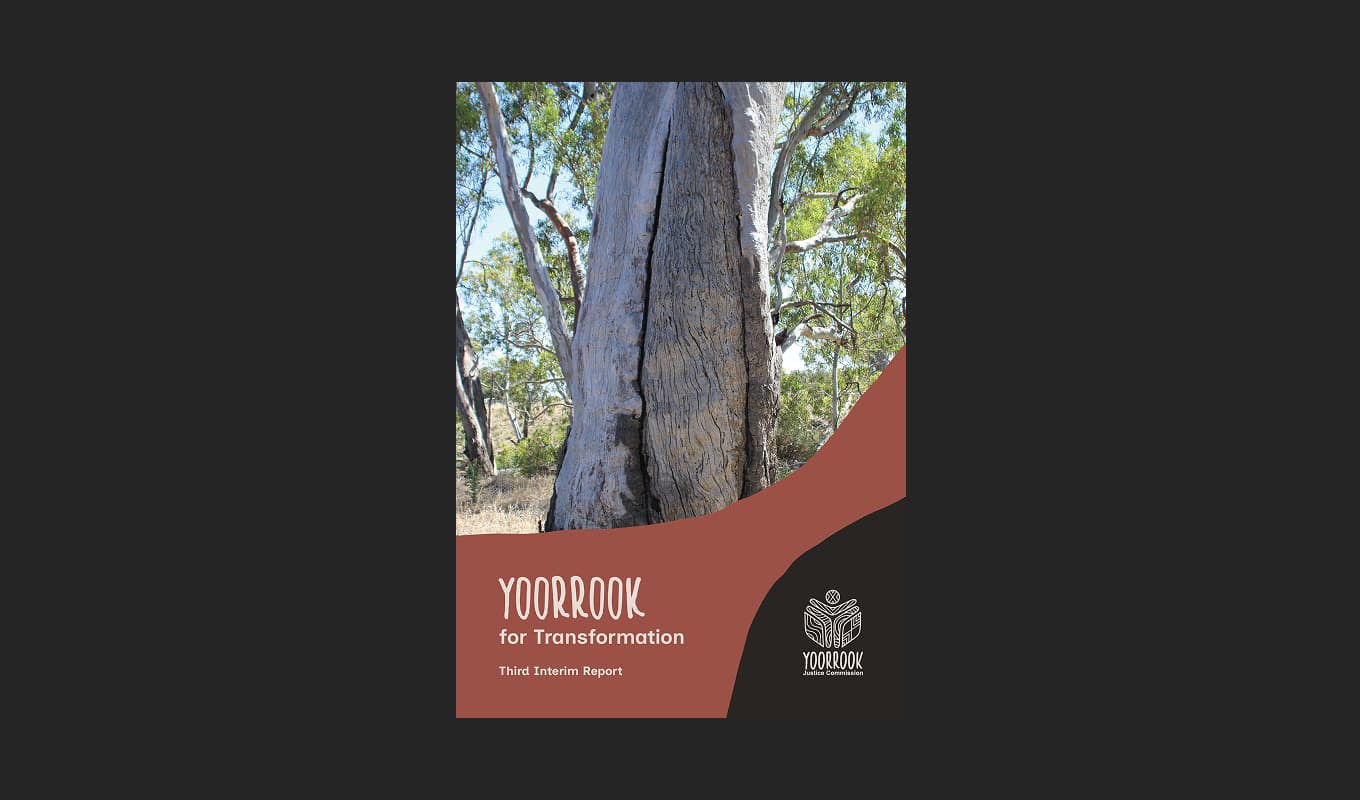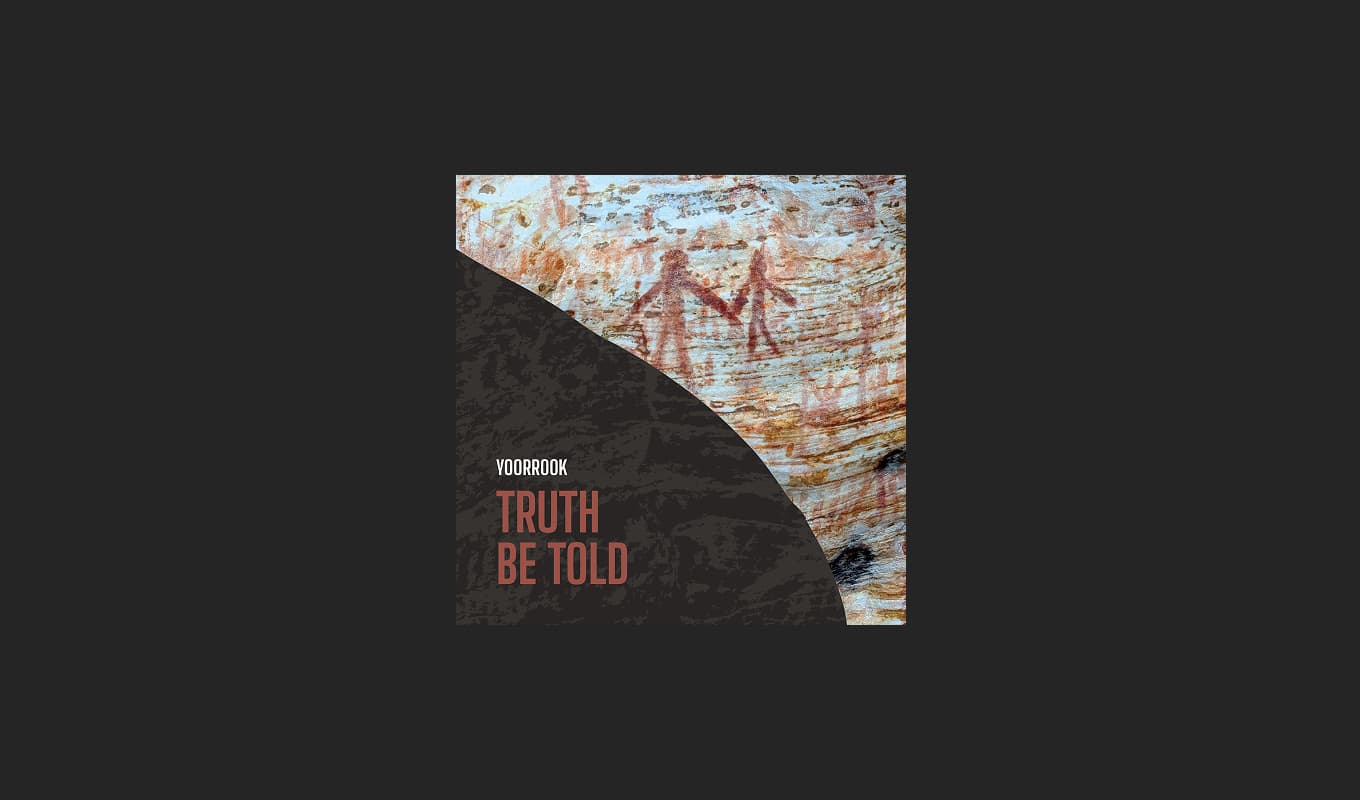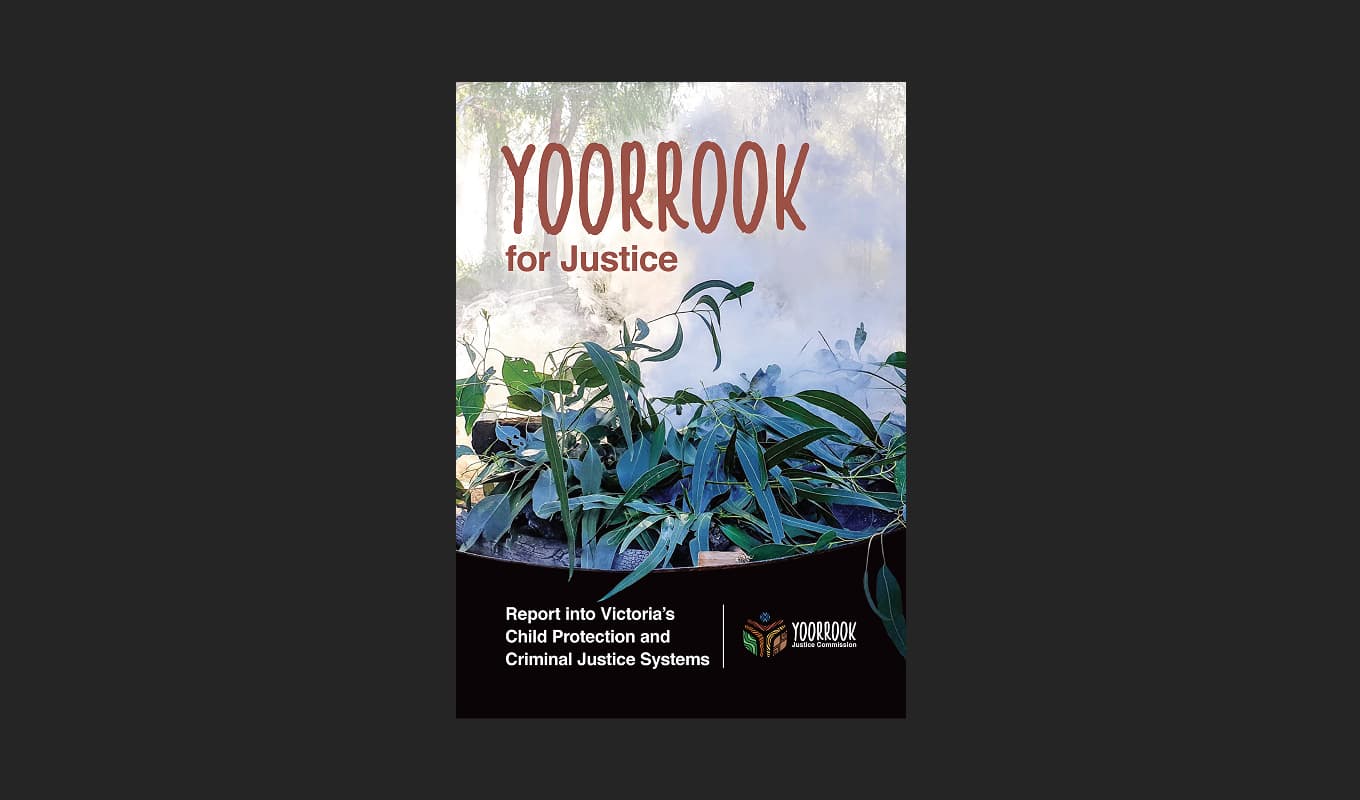Melissa Turnbull
Melissa Turnbull describes the brutal colonisation of Victoria, including undocumented massacres and displacement of First Peoples. Her education on First Nations history was inadequate, and she advocates for investment in languages, reparations, and comprehensive cultural education. She suggests non-First Nations Victorians contribute to truth-telling and treaty by researching history, listening to First Peoples, and supporting their organisations.
Submission Transcription
That there were waves, that the North East of Vic was colonised as squatter spread down from Sydney, that waves of disease flowed through the land before colonisers came to so called Victoria. That the South coast was colonised 30 years later than Sydney, after the horrific invasion of NSW and Tasmania. That squatters came from Tasmania to Portland with their sheep. That these squatters committed mostly undocumented massacres of First Peoples, beginning with Gundijmara. That Gundijmara resisted and fought back for their sovereignty. That, different than what I has assumed, my “ancestors” or my people, Europeans of the time, apparently weren’t all racist savages as I had assumed (the only reason that I could fathom for how such atrocious acts could be orchestrated), That in fact by the time Victoria was colonised, there were people, humanitarians, in London, in Europe, who understood the atrocities that had been happening, and who didn’t want the “settlement” of Victoria to be as brutal as what had happened in NSW & Tasmania. However, because the settlement of Victoria began with squatters, and wasn’t initially “state sanctioned” or Crown approved, that squatters went on fencing off Gundijmara land, bringing sheep in, who ate First Peoples food crops and shooting anyone who dared to cross this imaginary property claim. The volcanic plains were great myrnong fields, were also apparently perfect sheep paddocks. First Peoples were quickly pushed off their lands. In some cases missions were a safe – ish place for First Peoples to escape that type of persecution. In Melbourne Naarm, colonists had been coming back and forth from Lutriwita Tasmania for a few years, and William Buckley had been living with the Waddawurrung, so initially was some kind of cultural broker. There was an attempt at a treaty, that wasn’t endorsed by London, and the goodwill did not last very long. The settlement of Melbourne was pretty rapid and First Peoples who had survived moved to Coranderk, lead by William Barak and Simon Wonga. First Peoples were killed by disease, poisoning, being shot, being forced off cliffs. In Gippsland Angus McMillan was responsible for many massacres of First Peoples. First Peoples fought for and were dispossessed of their lands. Colonisation, and the peoples who colonised Victoria, separated First Peoples from their lands, destroyed their food crops, provided poor food substitutes, spread disease, flat out murdered many people with guns, poisoned water holes, violently removed children from families, forbade people from speaking their language while in institutions. When First Peoples fought for their land back, cruely the crown made them try to prove that they had continuing connection to the land, that they had been from by colonisation Yet after so much has been lost, First Peoples remain steadfast, resilient protectors and carers for country and their oldest living culture.
My experience of learning about First Peoples history and culture in Victoria’s education system was pretty poor. I remember learning about Captain Cook and the First Fleet, about stereotypical Aboriginal peoples living in the outback, not that there were First Peoples where I was in Naarm / Melbourne. In high school it was marginally better, I remember watching BabaKiueria but I don’t remember having very many particularly useful discussions or study the material. At university I chose an Indigenous Studies subject, wrote an essay about whether The stolen generations were an example of genocide or not and I still don’t know that the gravity of what had happened here had permeated my skin. It is only in recent years in cross-cultural experiences, understanding whiteness, witnessing genocide in other countries, understanding more about colonisation, colonialism, imperialism and capitalism in general, visiting missions, hearing stories, watching many films that more of the truth could sink in. My experience of the Victorian education system was absolutely not comprehensive.
Changes I’d like to see in Victoria understanding respect for First Peoples cultures Investment in languages – First Peoples accessing, being able to research, teach, share. Reparations and Land back Land in his First Peoples management and ownership Investment in First Peoples health and services Support for Lidia Thorpe’s Genocide Bill Investment in cross-cultural training or directly to land councils and First Peoples to be able to provide these. Universal basic income so that people can survive under capitalism and not need to monetise cultural practices to be able to survive under capitalism. Funding for First Peoples cultural learning teaching institutions as in Aotearoa New Zealand‘s Wananga model where New Zealanders (and Australians) can learn Maori language and culture for free at University through a Maori cultural lens More sculptures and monuments about Aboriginal Heroes A Frontier War Memorial Frontier Wars to be taught for people to share their stories and for education and spaceholding for truths to be received For the stories recorded by the Yoorook Justice commission to be made accessible for a wider audience – in books, presentations, educational resources, TV, Social media. For public holidays that celebrate First Peoples – special days, seasonal land and cultural celebrations to be widely celebrated Changing the date of Australia Day! People’s Assemblies for decision making
Non – First Nations Victorians can contribute to the process of telling and Treaty by Investigating their own Histories By listening to these stories collated by Yoorook By sharing their learning with other non First Nations Victorians By supporting First Peoples organisations By showing up and going to First Peoples events and celebrations By grieving what has been lost here By getting together to listen to First Peoples’ stories, debriefing hearing these truths by sharing their thoughts feelings reactions together afterwards, by holding space in a non First Peoples caucus so that First Peoples don’t need to hear us working through and unlearning our racism etc By participating in cross-cultural storytelling and Immersion programs like YARN Australia By understanding how their ancestors – up to today, participated in, suffered from, benefit from and / or are still affected by colonisation here or in other ancestral places, understanding power dynamics and who oppressed and who oppressed others By learning about the forces of colonisation and how listening to Indigenous leadership and lifeways can help us all to connect with, rehabilitate our planet, help mitigate total environmental degradation and climate change effects, beginning by listening to First People’s indigenous wisdom and connecting to country.
Non – First Nations Victorians can contribute to the process of telling and Treaty by Investigating their own Histories By listening to these stories collated by Yoorook By sharing their learning with other non First Nations Victorians By supporting First Peoples organisations By showing up and going to First Peoples events and celebrations By grieving what has been lost here By getting together to listen to First Peoples’ stories, debriefing hearing these truths by sharing their thoughts feelings reactions together afterwards, by holding space in a non First Peoples caucus so that First Peoples don’t need to hear us working through and unlearning our racism etc By participating in cross-cultural storytelling and Immersion programs like YARN Australia By understanding how their ancestors – up to today, participated in, suffered from, benefit from and / or are still affected by colonisation here or in other ancestral places, understanding power dynamics and who oppressed and who oppressed others By learning about the forces of colonisation and how listening to Indigenous leadership and lifeways can help us all to connect with, rehabilitate our planet, help mitigate total environmental degradation and climate change effects, beginning by listening to First People’s indigenous wisdom and connecting to country.
Truth-teller consent
Contact us about this submission
Contact us if you’d like to discuss this submission.
Similar submissions
Explore submissions from other witnesses that discuss similar topics.
Mary Hassall
This submission is from Mary Hassall, a descendant of James Hassall, after whom the Hassall creek on Gunditj Country is named. It discusses her resear... more
Viki Sinclair (Fowler)
Viki Sinclair is a direct descendant of one of the original settlers of Gippsland, Colin McLaren. In this submission, she tells her personal story of... more
The Thomson Family Descendants
Some of the Thomson family descendants make this submission in hope that, it assists to establish the truth of impact on First Nations by early settle... more
Gayle Carr
Gayle Carr makes this submission on behalf of herself, Kathryn Williamson and the late Diana Halmarick. It outlines the range of historic reference ma... more
Reports and Recommendations
Read the official reports and recommendations of the Yoorrook Justice Commission.

Yoorrook for Transformation
Third Interim Report: A five-volume comprehensive reform report presenting evidence and findings on systemic injustices, and specific recommendations for meaningful change to transform the future.

Truth Be Told
An official public record that documents First Peoples experiences since colonisation, preserves crucial testimonies for future generations and creates an enduring resource for education and understanding.

Recommendations for change
Yoorrook Justice Commission’s recommendations for truth-telling, justice, and systemic reform in Victoria.
